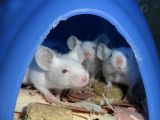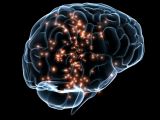In 2013, about 2.1 billion people in the world qualified as either overweight or downright obese. Hence, it should not come as a surprise that scientists are hard at work trying to come up with ways to help folks get in shape.
In a recent study in the journal Cell Reports, UC San Francisco researchers explain that, having carried out a series of experiments on mice, they found evidence that certain immune cells influence eating behavior and can promote weight gain.
Thus, the scientists say that, when fed a high fat diet, the rodents they experimented on came to have a whole lot of immune cells known as microglia in a brain region known as the hypothalamus, Medical Express informs.
When the specialists destroyed these immune cells, the mice started eating less than they normally did. Interestingly enough, it is understood that the foods they willingly cut down on were those containing a wee too much fat.
As detailed in the journal Cell Reports, the presence of one too many such immune cells in the rodents' brain caused inflammation. When the microglias disappeared, so did the inflammation and the animals' increased appetite for unhealthy foods.
In light of these findings, the UC San Francisco researchers argue that, if their findings also hold true in the case of humans, it might be possible to fight obesity by reshaping the body's immune system and its influence on the brain.
“Targeting microglia may therefore be a novel way to control food intake in the face of consumption of a fat-rich diet, something that is quite common in today's world,” specialist Suneil Koliwad.

 14 DAY TRIAL //
14 DAY TRIAL // 



